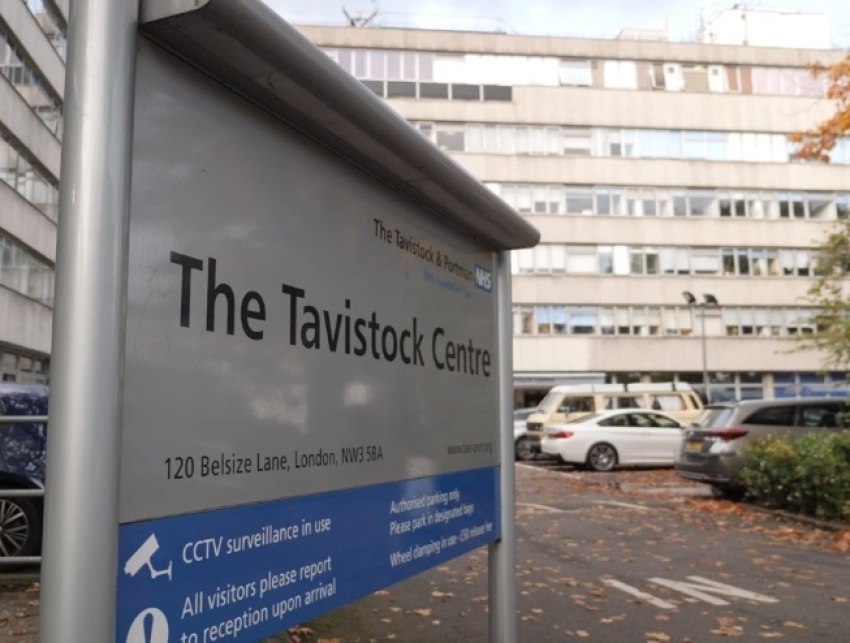Detransitioner joins legal challenge against UK gender clinic, says trans medicalization 'torturous and unnecessary'

A British woman, who was given hormone blockers and opposite sex hormones as part of a gender transition, is suing the clinic that gave her the drugs, arguing she was medically harmed.
As reported by the U.K. Times, Keira Bell, 23, a female who is among the increasingly visible chorus of what are known as "detransitioners" — persons who once lived and identified as transgender and underwent experimental medical regimens to alter their bodies and now regret it — is mounting a legal challenge against the lone gender clinic in the U.K., the Tavistock and Portman National Health Service Trust in London.
Bell, who was given the puberty-suppressing drugs and cross-sex hormones during her mid-teens, now says she found the experience of gender-transitioning traumatic and that the clinic's approach to treating children is not lawful because the risks are not adequately explained and minors are incapable of giving consent to such interventions.
“She now very seriously regrets the process and feels that the way it was handled and her involvement in it was not appropriate,” Bell's lawyer, Jeremy Hyam, told the U.K.'s highest court last week during the hearing.
Bell said in a statement after the proceedings concluded that she does not believe "that children and young people can consent to the use of powerful and experimental hormone drugs like I did.”
"The treatment needs to change so that it does not put young people, like me, on a torturous and unnecessary path that is permanent and life-changing.”
Bell, who is currently an unemployed IT engineer from Cambridge, has become the most prominent claimant in a case now being adjudicated as to whether young people can give consent to such life and body-altering medical practices amid ongoing and intensifying debate over transgender ideology, particularly as it relates to medical care and the Gender Recognition Act.
The case was brought about by a former Tavistock employee, psychiatric nurse Sue Evans, who blew the whistle on the clinic's internal practices. Evans and others, such as former Gender Identity Development Service-Leeds psychologist Kirsty Entwistle, have publicly expressed alarm about the troubling practices within the clinic, namely, the speed with which young people were being referred for hormone blockers and telling families that the treatments were "fully reversible" when, in fact, long-term side effects of the drugs remain unknown.
Another claimant to the case is an unnamed mother of a child — whose identities will continue to remain anonymous per court order — presently awaiting assessment at Tavistock but is opposed to its clinical approach.
In the past decade, the number of referrals of boys and girls for the treatment of gender dysphoria has grown exponentially, which led to a formal inquiry in 2018. Data at the time showed that from the years 2009-2010 to 2017-2018, referrals rose more than 4000 percent, a figure that disproportionately impacted young girls.
Those numbers continue to rise.
According to the U.K. trans-critical website TransgenderTrend, the number of girls referred to gender clinics increased by 6 percent in 2019. While the rise may seem small, each year’s percentage rise is based on a much larger base number each consecutive year.
"In 2009/10 there were 32 girls and 40 boys referred to Tavistock GIDS. In 2011/12 the sex ratio reversed and the gap between boys and girls has continued to widen year on year ever since. The total number of referrals for 2018/19 in England alone is 624 boys and 1,740 girls. In less than a decade there has been a 1,460% increase in referrals of boys and a staggering 5,337% increase in girls," the site noted in a June 2019 post.
Across the Atlantic Ocean, bills are now being introduced and considered in several U.S. state legislatures, most notably in South Dakota, to make the medicalized gender transitioning of minors a criminal offense.
Meanwhile, teen detransitioners have been taking to YouTube to share how trans-affirmative therapies and drugs harmed their bodies and altered their psyches.
“My puberty was medicalized,” recounted Elle Palmer, a detransitioner in an interview last week with transgender YouTube personality Blaire White.
“From a young age, I dealt with mental health problems that ultimately put me on a path of trying to fix myself — to figure out what was wrong with me.”
Among her most significant of regrets Palmer said she had was the permanent deepening of her voice and the growth of facial hair due to taking testosterone.
In October, Sky News reported on the growing number of such detransitioners who are seeking to desist and return to their biological sex. Charlie Evans, a female detransitioner and founder of the Detransition Advocacy Network, told the network that she has heard from "hundreds" of people who regret their transition, mostly females who are same-sex attracted, many in their twenties, and many are often autistic.



























